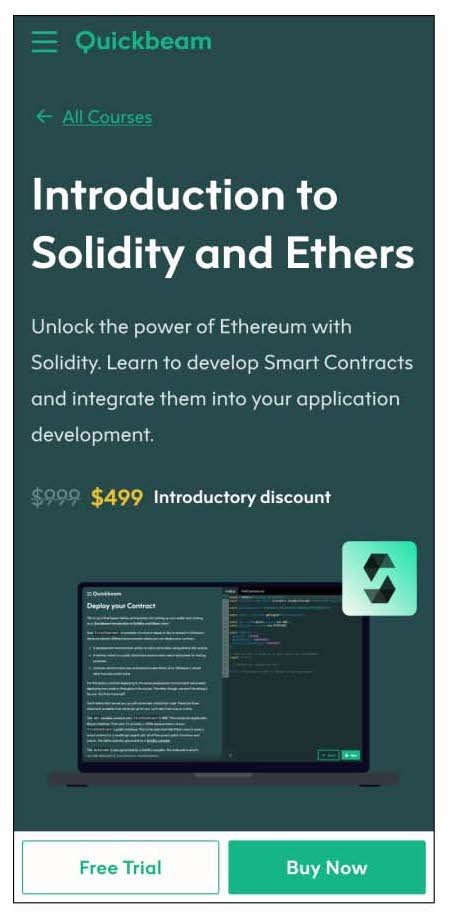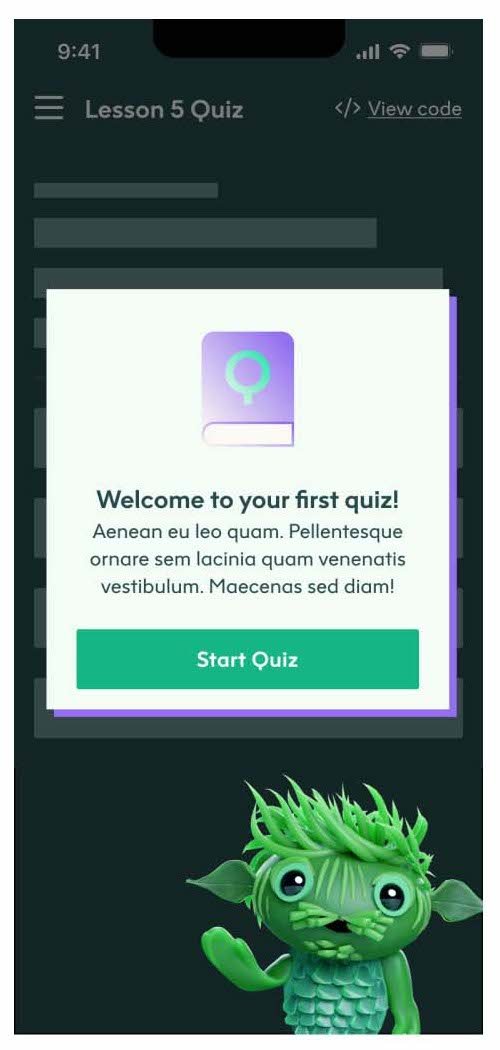How Red Squirrel built and launched a global Web3 edtech platform
Greenfield Product Development
Quickbeam is a technical education platform aimed at promoting accessibility and inclusivity in the field of Web3 and emerging technologies. Red Squirrel was the development partner from the beginning, tackling challenges such as lesson content and evaluation, infrastructure and production deployment, and user experience. After building the MVP for investor pitches, Red Squirrel built the full product for launch.
TL:DR
Quickbeam is a technical education platform designed to bridge the adoption chasm to Web3 and other bleeding edge technologies.
Quickbeam is on a mission to create the world's most accessible and inclusive technical learning community. The initial vision is to educate and connect the world's technical learners to the power of Web3, because they believe that anyone who wants to learn about blockchain technology should be able to.
About Quickbeam
The creation of Quickbeam happened in 3 separate phases: Research and Development, Prototype and Funding, and Product Launch.
The first phase of work for Red Squirrel was Research and Development. This included market research, competitive analysis, executive summaries of chains and protocols, technical research on tools like code editors and Integrated Development Environments (IDE), and a high-level technical architecture diagram.
During this phase, Red Squirrel helped to narrow down the scope and focus on identifying and starting to design for specific challenges, including:
Lesson Content and Evaluation
Flexibility for multiple blockchains and the multiple languages to develop on those chains.
Easily add curriculum in multiple human languages (internationalization).
Actually run the user’s code responses against test suites for true learning, not just one solution fits-all responses.
Support for richness in curriculum content, like code editing, quizzes, videos, etc.
Infrastructure & Production Deployment
Make minor updates to the curriculum without the need for a deployment.
Ability for instructors to develop curriculum in a low tech environment.
User experience
Responsive and first class experience on mobile and small devices.
Provide the user with easily understandable feedback on their code submissions.
The Challenge
Our solutions
Prototype and Funding Phase
After identifying the market fit and challenges, the next step for Red Squirrel was to develop a proof of concept web app prototype for demonstration in pitches to potential investors. This phase built off of the research and high level designs from the Squirrels’ work in the R&D phase.
A fully functional web app with an editor, Rust compilation, and lessons for a sample Solana course were implemented. Red Squirrel deployed this prototype application so that the co-founders could choose to lead potential investors through it as part of their demonstration, or just send a link for investors to go through the prototype experience themselves.
Product Launch Phase
With funding secured, the third phase, to refine and continue to build the web app, was launched. In this phase, Red Squirrel took learnings from the prototype phase, made adjustments based on feedback, and started building a product for users.
Red Squirrel had solutions for multi-language and chain support, and had a working solution to Rust and Solana compilations and builds from the prototype. However, with better market fit and core competency in Ethereum and Solidity, Ethereum became the focus. Red Squirrel also continued to develop a robust and secure architecture for running users’ code, providing feedback, and serving up curriculum.
The Squirrels also developed and implemented a robust design system on both the design and development sides for brand consistency and ease of future composability. Reflection was made on the mission values and challenges identified from the previous phases which led to product refinements and support for additional features like community support.
Results
Seed funding secured – The proof of concept prototype was used for a successful angel and seed fundraising round.
Successful global launch – Quickbeam launched in 2023 with a complete Introduction Course and a preview Intermediate Course. The courses contain a variety of different types of lesson content with feedback loops and Discord support to help learners and keep them motivated. The launch has been met with global interest.



